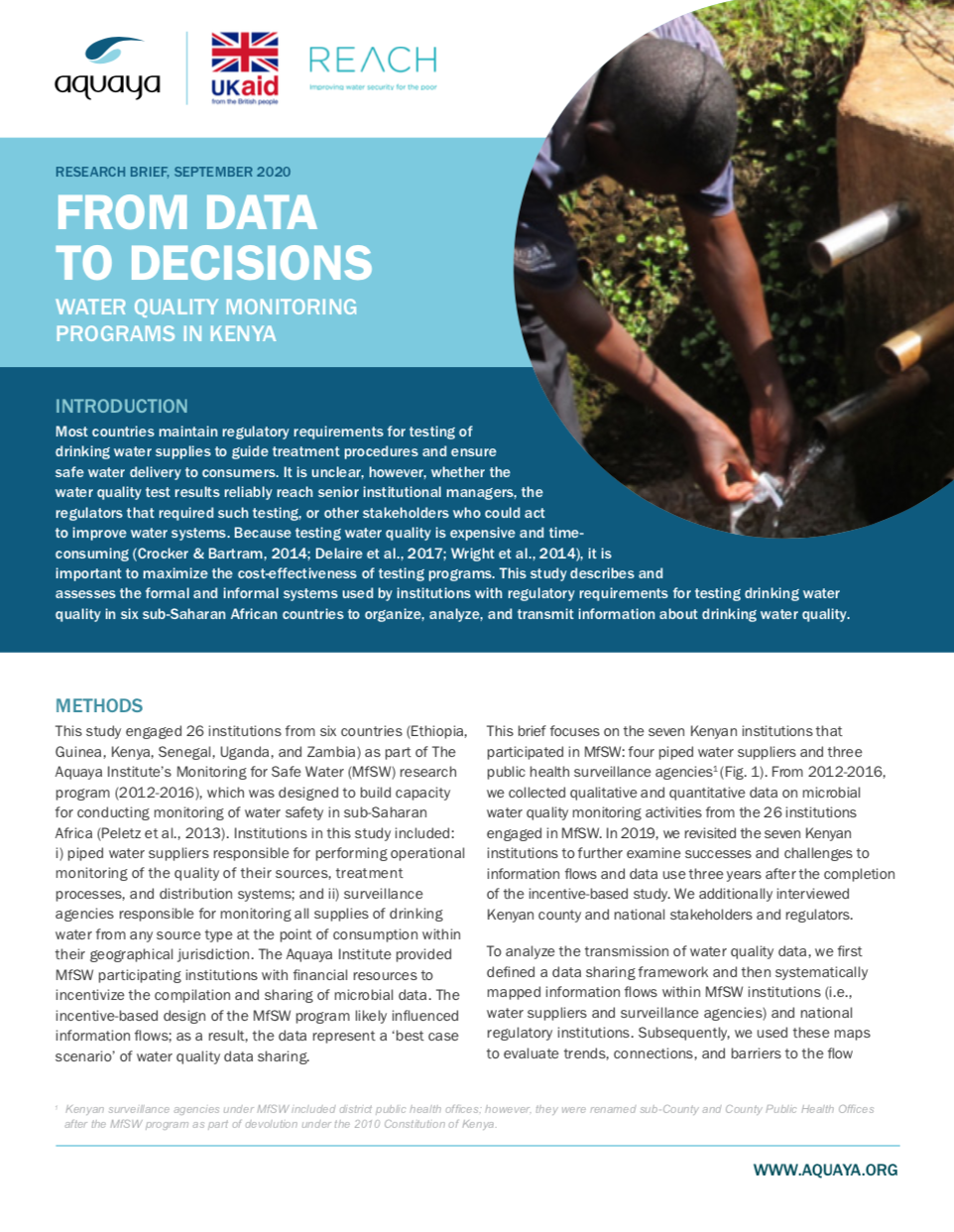Most countries maintain regulatory requirements for testing of drinking water supplies to guide treatment procedures and ensure safe water delivery to consumers. It is unclear, however, whether the water quality test results reliably reach senior institutional managers, the regulators that required such testing, or other stakeholders who could act to improve water systems. Because testing water quality is expensive and time- consuming, it is important to maximize the cost-effectiveness of testing programs.
This study describes and assesses the formal and informal systems used by institutions with regulatory requirements for testing drinking water quality in six sub-Saharan African countries to organize, analyze, and transmit information about drinking water quality.

